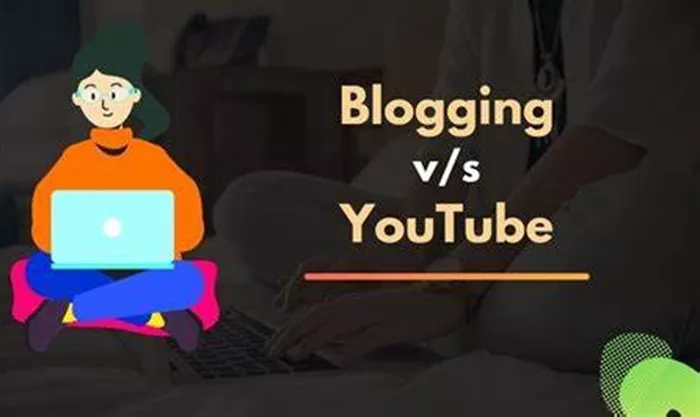In today’s digital age, monetizing content has become a mainstream career option. Two of the most popular ways to earn money online are blogging and creating videos on YouTube. Both platforms offer lucrative opportunities but cater to different types of audiences and skillsets. The question is: which makes more money blogging or YouTube? Let’s dive into a detailed comparison, analyzing the earning potential, strategies, and challenges of both blogging and YouTube.
Understanding Blogging
Blogging involves creating and maintaining a website where written content is published. Bloggers write about specific topics, offering value to their readers through articles, guides, reviews, or personal experiences. The potential to monetize a blog is vast, but it largely depends on the niche, audience, and monetization strategies used.
Ways Bloggers Earn Money:
- Advertising: Display ads through platforms like Google AdSense generate revenue based on impressions or clicks.
- Affiliate Marketing: Bloggers promote products or services and earn a commission for every sale made through their affiliate links.
- Sponsored Content: Brands pay bloggers to write articles promoting their products or services.
- Selling Digital Products: E-books, courses, or exclusive content can be sold directly to readers.
- Subscription Models: Some bloggers offer premium content for subscribers, generating recurring income.
Factors That Influence Blogging Income:
- Traffic: More visitors to the blog mean higher ad revenue and affiliate sales.
- Niche Selection: Profitable niches like finance, health, and technology tend to attract higher-paying advertisers.
- SEO Mastery: Ranking high on search engines drives organic traffic.
- Consistency: Regularly posting quality content is crucial for retaining readers and attracting new ones.
Understanding YouTube
YouTube creators produce video content, catering to audiences who prefer visual and auditory experiences. The platform’s vast reach and video-centric nature make it a powerful medium for earning.
Ways YouTubers Earn Money:
- Ad Revenue: Earnings from ads shown before, during, or after videos through the YouTube Partner Program.
- Sponsorships: Brands pay YouTubers to promote their products in videos.
- Affiliate Marketing: Including affiliate links in video descriptions for commissions on sales.
- Merchandise Sales: Selling branded merchandise directly to viewers.
- Channel Memberships: Offering exclusive perks to paying subscribers.
- Super Chats and Donations: Viewers contribute money during live streams.
Factors That Influence YouTube Income:
- Views and Engagement: Higher views and interaction boost ad revenue.
- Content Niche: Some niches, like technology and finance, attract higher-paying advertisers.
- Audience Demographics: Audiences from certain regions may result in higher earnings.
- Video Consistency: Regular uploads keep viewers engaged and attract new subscribers.
Key Differences in Income Potential
When comparing blogging and YouTube, it’s essential to understand the major differences in earning dynamics.
Start-Up Costs:
Blogging requires minimal initial investment—domain registration and hosting fees.
YouTube can require investments in cameras, microphones, and editing software for quality video production.
Time to Generate Revenue:
Blogs may take months to rank on search engines and attract consistent traffic.
YouTube videos can go viral quickly, but building a loyal subscriber base takes time.
Ad Revenue:
Blogs rely on impressions and clicks. Earnings are influenced by ad placement and traffic.
YouTube pays based on views, watch time, and the ad rates for specific videos.
Control Over Content:
Bloggers own their websites and have complete control over their content.
YouTube’s policies and algorithms dictate visibility and monetization eligibility.
Audience Engagement:
Blogging typically engages through comments or email subscriptions.
YouTube offers real-time engagement through likes, comments, and live streams.
Challenges in Blogging
While blogging can be lucrative, it’s not without challenges:
- High Competition: Standing out among millions of blogs requires unique, high-quality content.
- SEO Dependency: Success heavily relies on understanding and implementing SEO strategies.
- Time-Consuming: Writing, editing, and promoting blog posts demand significant time and effort.
- Monetization Barriers: It can take months or even years to see significant earnings.
Challenges in YouTube
YouTube creators face their own set of obstacles:
- Algorithm Changes: YouTube’s algorithm updates can significantly impact video visibility.
- Production Demands: Creating videos requires scripting, filming, editing, and post-production.
- Ad Revenue Fluctuations: Earnings can vary based on seasonality and advertiser demand.
- Monetization Rules: Achieving the required 1,000 subscribers and 4,000 watch hours to join the YouTube Partner Program can be difficult.
Which Makes More Money?
There is no definitive answer to whether blogging or YouTube makes more money because the outcome depends on individual efforts, niches, and strategies. However, here are some insights:
Blogging:
Ideal for individuals who excel in writing and enjoy long-form content.
Offers more stability and control, especially with owned websites.
Potential to build passive income through evergreen content.
YouTube:
Best for those comfortable on camera and with a knack for storytelling.
Higher potential for viral content and rapid growth.
Opportunities for diversified income streams through viewer engagement.
Combining Blogging and YouTube
Many creators find success by combining both platforms. For instance, a blogger can create a YouTube channel to complement their articles, while a YouTuber can start a blog to repurpose video content. This approach maximizes audience reach and revenue streams, leveraging the strengths of both mediums.
Conclusion
Both blogging and YouTube offer immense earning potential, but the choice depends on individual strengths, interests, and resources. Blogging suits those who prefer writing and maintaining control over their content, while YouTube appeals to visual storytellers who thrive on interaction. Ultimately, success in either platform requires dedication, creativity, and a strategic approach to monetization. Whether you choose blogging, YouTube, or both, the key lies in delivering value to your audience and staying consistent in your efforts.
Related Topics

